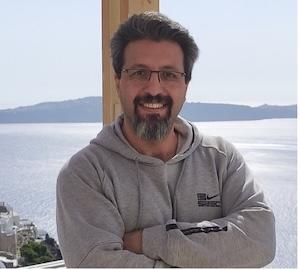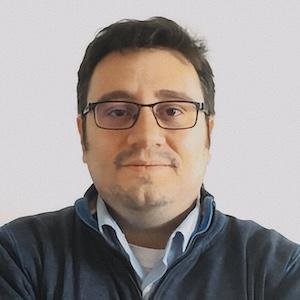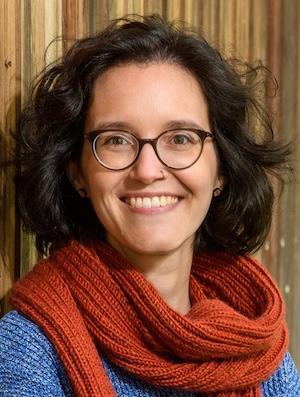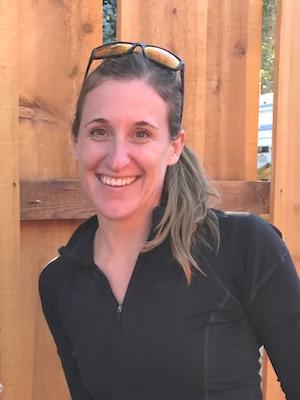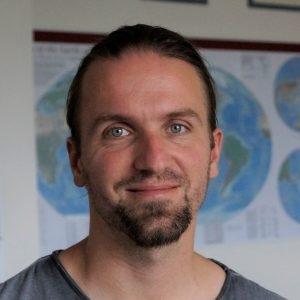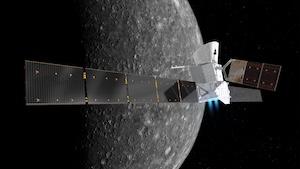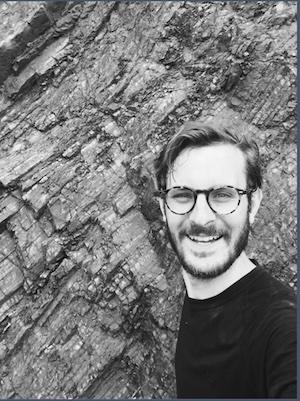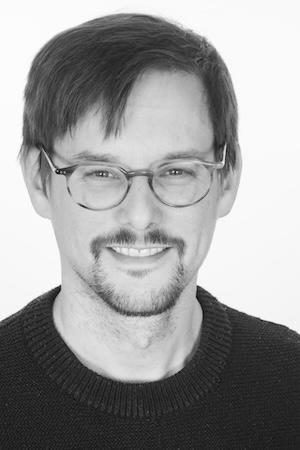Geo-colloquium programme
Program Winter-Semester 2025/26 |
|
16.10.202513:15, Lecture hall C.011 Dr. Kathleen Stoof-Leichsenring (AWI Potsdam)Sedimentary Ancient DNA - An Innovative Proxy for Paleoenvironmental ReconstructionAbstract: Understanding the development of past ecosystems provides valuable information about species dynamics under changing environmental conditions and allow ecosystem predictions under future climate change. Ancient DNA preserved in sediment cores, provide an archive of the past and makes it possible to track species without fossil remains. Moreover, ancient DNA allows higher taxonomic resolutions than traditional proxies (like pollen) allowing deeper insights into changes of composition, functionality and interactions between species over time. Arctic environments are highly threatened due to climate change and at the same time provide well suited archives of cold adapted ecosystems and its response to warming. In our research at AWI-Potsdam we aim to understand changes in Arctic ecosystem on long-time scale leveraging knowledge for ecosystem management and protection under future warming scenarios. Vita: Kathleen Stoof-Leichsenring is a senior scientist and laboratory leader of the research group “High-Latitude Biodiversity” in the section of Polar Terrestrial Environmental Systems at the Alfred Wegener Institute Helmholtz Centre for Polar and Marine Biology. Her research interests are in paleogenetics and - genomics combined with paleoenvironmental research with a focus on the Polar terrestrial and marine biomes and their compositional and functional changes from Late Pleistocene until recent Invited by: Pavel Tarasov |
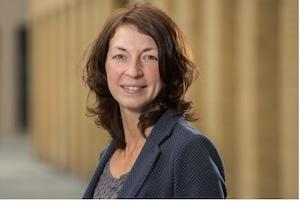 |
23.10.202513:15, Lecture hall C.011 Dr. Simona Regenspurg (GFZ Potsdam)Critical Raw Materials in Geothermal Fluids - Perspectives from the North German BasinAbstract: The co-use of geothermal fluids for heat and critical raw materials (CRM) provision becomes an increasingly attractive idea for geothermal operators and investors. This approach could be a way to fulfill both, climate goals and the implementation of the Critical Raw Material Act for Europe. So far specifically lithium (Li) is mined from geothermal fluids in some geothermal plants, e.g. in the Upper Rhine Graben. The amount of Li in a brine strongly depends on the geological and geochemical conditions of a reservoir. Currently, the North German Basin (NGB) obtains some attention due to its very high Li content in deep brines from Bunter and Rotliegend sandstones (up to 600 mg/L). Vita: Prof. Dr, Simona Regenspurg is a researcher at GFZ Helmholtz Centre for Geosciences. She received her diploma in geology from the LMU in Munich and her PhD in Environmental Sciences at the University of Bayreuth. After several postdocs (e.g. Colorado School of Mines, USA and EPFL Switzerland) she joined the geothermal group at GFZ. Her research is on geochemical processes in context with geothermal energy exploitation. At GFZ she is head of the working group "Geothermal Fluids" where in field and lab studies geothermal systems are investigated with focis on geochemical reactions at elevated temperatures and salinities. Since 2011 she is teaching at the Department of Hydrgeology at the FU Berlin where she received her habilitation in 2015 and the APL professorship in 2025. Invited by: Nadine Göppert |
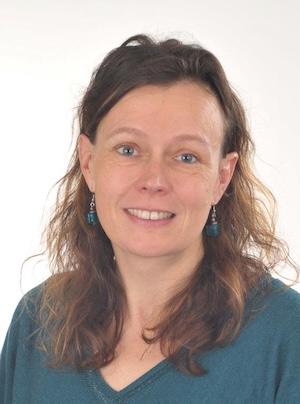 |
30.10.202513:15, Lecture hall C.011 Dr. Pavel Tarasov (FU Berlin)Palaeoenvironments and long-term culture change of hunter-gatherers in Northern Eurasia: What do we know and what do we want to know?Abstract: Since its introduction in 1916, pollen analysis has played a prominent role in a variety of methods used to reconstruct past environments, human economies, and the interactions between them. The introduction of new research methods (sedaDNA, biomarkers, isotopes, climate modelling, etc.) has further strengthened pollen analysis as a team player in multi-proxy interdisciplinary projects. This lecture focuses on Northern Eurasia, which played a key role in the spread of anatomically modern humans during the Upper Palaeolithic – a period that was climatically the harshest and most changeable phase of the last ice age. Vita: Pavel Tarasov is an apl Professor of Quaternary Sciences at Freie Universität Berlin. His research interests include pollen analysis, regional-scale reconstructions of Holocene and Pliocene-Pleistocene plant communities, quantitative pollen-based climate, tree cover and biome reconstructions, human environment interactions, and data-model comparison. His areas of research are Eurasia, from the Atlantic coast to Japan, North Africa and Arctic North America. During his research career in Germany, he received a visiting scholar award from the University of Alberta (Canada), a Heisenberg Fellowship (DFG), and a fellowship from the Alexander von Humboldt Foundation. His publication list includes 236 items and over 900 coauthors. Invited by: Stefanie Kaboth-Bahr |
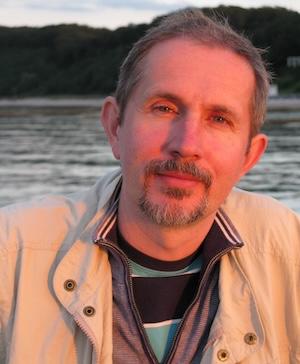 |
06.11.202513:15, Lecture hall C.011 Dr. Sadegh Karimpouli (GFZ Potsdam)Unsupervised Clustering of Seismic Catalog Features: Linking Laboratory Stress Evolution to the Preparatory Phase of Natural Fault SystemsAbstract: Despite decades of research, the identification of the preparatory phase of large earthquakes remains elusive due to the inherent complexity and variability of earthquake nucleation processes. To address this, we apply an unsupervised machine learning (ML) approach to cluster seismicity data in a high-dimensional feature space derived from earthquake catalog. In laboratory experiments, our analysis reveals three distinct clusters that align well with the temporal evolution of stress. In natural fault systems, seismicity transients preceding large earthquakes, when they occur, emerge as distinct stages of seismicity, transitioning from normal to critical before the mainshock. Vita: Sadegh Karimpouli is a researcher at GFZ Helmholtz Centre for Geosciences. He received his PhD in Exploration Geophysics from Amirkabir University of Technology, Iran. As an Associate Professor at the University of Zanjan, Iran, he developed machine learning models with a focus on digital rock physics applications. Since joining GFZ, his research has centred on explainable machine learning algorithms to investigate the preparatory phase of earthquakes. He has applied ML methods across different scales, from laboratory experiments to geothermal reservoirs and natural fault systems. Further details are available on his homepage and Google Scholar profile. Invited by: Marco Bonhoff |
|
13.11.202513:15, Lecture hall C.011 Dr. Dominic Wölki (U Freiburg)Radiogenic Isotopes in Peridotites: Tracing Mantle Circulation Through TimeAbstract: Peridotites act as geochemical archives that record mantle processes through time. Radiogenic isotope systematics, especially Hf–Nd, reveal how ancient melt depletion, later enrichment, and melt–rock interactions shape mantle domains. These isotopic signatures provide key insights into the circulation of material from mid-ocean ridges to subduction zones, linking mantle convection with crustal recycling. By integrating peridotite records across tectonic settings, we can trace the temporal and spatial evolution of mantle dynamics and Earth’s deep geochemical cycles. Research Interest: Plate tectonics is the result of the Earth’s most efficient way to lose heat and causes upwelling and melting of mantle, forming new oceanic crust. This crust is recycled back into the mantle at subduction zones. These processes cause differentiation and element cycling, affecting the composition of the mantle, crust, and the atmosphere over geological timescales. To understand the Earth as a complex system today and in the future, it is important to understand the evolution and interaction of those reservoirs. My current research focuses on igneous petrology and isotope and trace element geochemistry aimed at answering the fundamental questions of high-temperature element cycling at convergent and divergent plate boundaries. Specifically, I am working on the geodynamic evolution and element cycling at subduction zones and the long-term compositional evolution of the Earth’s mantle. The Earth’s mantle has been neglected in understanding element cycling, especially in subduction zones. Volatiles (e.g., CO2), either recycled back into the mantle or degassed during magmatism affects the atmosphere and thus life on Earth. My main research is focused on three topics: (1) Small and large scale spatial and temporal heterogeneity in oceanic mantle domains. (2) The influence of mantle source composition on the formation of oceanic spreading centres and oceanic rises. (3) The recycling of elements in subduction zones and their influence on the composition of the melting residue, crust, and atmosphere. I am facilitating different different techniques like microscopy, electron microprobe, LA-ICP-MS and MC-ICP-MS to understand the long-term evolution of the Earths different reservoirs. Link to homepage: https://www.minpetro.uni-freiburg.de/team/woelki/woelki Invited by: Elis Hoffmann |
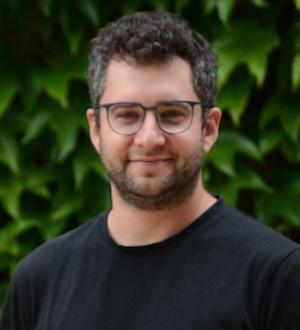 |
20.11.202513:15, Lecture hall C.011 Dr. Taylor Smith (U Potsdam)Predicting Instabilities in Transient Landforms and Interconnected EcosystemsAbstract: Many parts of the Earth system are thought to have multiple stable equilibrium states, with the potential for rapid and sometimes catastrophic shifts between them. A lot of recent scholarship has focused on understanding tipping points in large-scale systems – such as the Amazon Rainforest, Greenland Ice Sheet, and Atlantic Meridional Overturning Circulation – using similar time-series based methods. In my talk I will present two main findings: (1) a novel method for examining tipping points in seasonal and spatio-temporal fields of data, and (2) applications of this new method to a system that has so far not been studied using the framework of tipping points: glacier surge events. Scientific Vita: My research focuses on extracting signals from diverse environmental datasets. I completed a PhD at Uni Potsdam (2018) in Remote Sensing, with a focus on changes in snow-water storage across High Mountain Asia. My current projects are focused on monitoring high-altitude rivers in Nepal, quantifying the state and fate of snow-water resources throughout Eurasia, and understanding the resilience of natural ecosystems. Link to homepage: https://tasmi.github.io/ Invited by: Steffi Tofelde and the Sedimentary Systems Group |
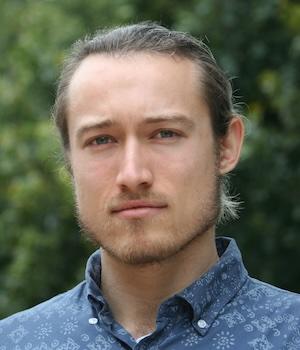 |
27.11.202513:15, Lecture hall C.011 Dr. Susanne Stein (FU Berlin)Research activities for sustainable and circular resource use at the Freie Universität BerlinAbstract: The recovery and circular use of critical raw materials from waste electronic equipment is important for enabling the transition to a sustainable high-tech society. The Mineralogy & Petrology research group at Freie Universität Berlin is working on determining the dissolution kinetics and downstream extraction processes for various critical metals from electronic devices and ores from mine tailings using newly developed ionic liquids. CSR|Berlin brings together research activities at Freie Universität Berlin that aim to achieve resource-efficient and circular material synthesis and utilization. Vita: Susanne Stein studied geography at Leipzig University and did her PhD in agricultural sciences at Georg August University in Göttingen, focusing on land use change. Her subsequent work at the Center for Agricultural Landscape Research (ZALF) and the Julius Kühn Institute (JKI) Federal Research Center for Cultivated Plants provided her with experience in project management and research data management, which she now applies as coordinator of the interdisciplinary Center for Sustainable Resources CSR|Berlin. Invited by: Timm John |
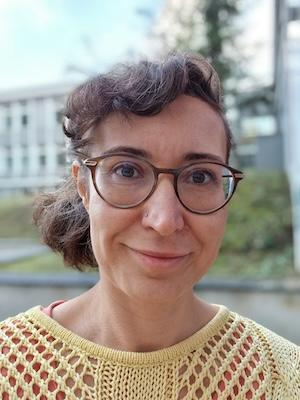
|
04.12.202513:15, Lecture hall C.011 Dr. Evangelos Moulas (Johannes Gutenberg Universität Mainz)The transient metamorphic characteristics of ophiolite obductionAbstract: Ophiolite obduction is a long-standing problem in geodynamics and petrology. This process involves the emplacement of the relatively dense oceanic lithosphere atop a continental margin. Over the years, several models have been proposed to explain the dynamics of obduction. Recent numerical models confirm that the conditions of obduction can be achieved in the case of the rapid compression of young and buoyant oceanic lithosphere. Such conditions seem to have been favored in the Tethyan region during the Jurassic times. Petrological and geochronological data from Pindos ophiolite (Greece) corroborate the fast transient character of the emplacement process. Inverse diffusion models of major elements in garnet and radiogenic Ar in muscovite further constrain the rapid timescales of shearing of such rocks. Under such conditions the contributions of shear heating, i.e. the heat produced during irreversible deformation, are not negligible and can explain both the weakening of the plate interface as well as the high-temperature rocks found in metamorphic soles.
Vita: Prof. Dr. Moulas is the leader of Metamorphic Processes group at Johannes-Gutenberg University Mainz. After studying Geology at the University of Athens in Greece, he completed his Dr. Sc. at ETH Zurich, Switzerland in 2014. After several years of post-doctoral research at ETH Zurich and University of Lausanne (Switzerland), he was hired as a Junior Professor at JGU Mainz (2019). In 2025, he was appointed a University Professor at JGU and is currently leading the Metamorphic Process Research Group. His research interests include the inverse kinetic modelling in minerals and the development of new numerical tools used in the modelling of phase equilibria, rock deformation, and fluid-rock interaction. More details can be found on the website. Invited by: Timm John |
|
11.12.202513:15, Lecture hall C.011 Dr. Stephanie Spahr (IGB Berlin)Safeguarding water quality: The challenge of trace organic contaminants in the urban water cycleAbstract: Freshwater resources worldwide are compromised by an ever-increasing number of pollutants that enter our water bodies through insufficiently treated wastewater or untreated agricultural and urban runoff. Man-made chemicals such as pesticides, pharmaceuticals, and industrial chemicals raise particular concern as they can cause adverse effects on ecosystems and human health. I will highlight that both droughts and extreme rainfall can lead to surface water quality deterioration, often with unknown risks. Cities, including Berlin, are implementing new strategies for climate-resilient water management. I will discuss novel approaches to assess and improve the treatment performance of nature-based solutions for stormwater purification to promote safe circular water use. Vita: Dr. Stephanie Spahr is a research group leader at the Leibniz Institute of Freshwater Ecology and Inland Fisheries (IGB) in Berlin. Her research focuses on the occurrence, fate, and removal of organic contaminants in natural and engineered aquatic systems. She conducted her doctoral research at the Swiss Federal Institute of Aquatic Science and Technology (Eawag, Dübendorf) and obtained her PhD in 2016 from the Swiss Federal Institute of Technology in Lausanne (EPFL). She was a postdoctoral scholar at the Department of Civil and Environmental Engineering at Stanford University in California, USA, and is currently a Member of the Board of the German Water Chemistry Society. webpage: https://www.igb-berlin.de/en/profile/stephanie-spahrInvited by: Nadine Göppert |
|
18.12.202513:15, Lecture hall C.011 Dr. Denis Anikiev (King Fahd University of Petroleum and Minerals)Emerging Trends in Generative AI for Seismic ImagingAbstract: Generative Artificial Intelligence is reshaping seismic imaging - from exploration surveys for resource characterization to earthquake hazard assessment and geothermal studies. Models such as GANs, VAEs, diffusion models, and transformer-based foundation architectures can now simulate realistic wavefields, reconstruct missing data, and forecast subsurface evolution. These data-driven approaches complement physics-based methods by providing rapid, probabilistic insights into Earth processes and uncertainties. In this overview talk, I will introduce the core ideas behind generative AI and explore emerging applications in geoscience focusing on both active and passive seismic imaging applications. These recent advances signal a paradigm shift toward next-generation geophysical modeling that is inherently integrated, adaptive, and interpretable. Vita: Dr. Denis Anikiev is a Research Scientist at the Center for Integrative Petroleum Research, King Fahd University of Petroleum and Minerals. He holds a Ph.D. in Geophysics from St. Petersburg State University, Russia, and has extensive experience in active and passive seismic imaging, microseismic monitoring, and Distributed Acoustic Sensing (DAS). Before joining KFUPM, he was a Senior Scientist at the GFZ Helmholtz Centre for Geosciences, Germany, leading projects in large-scale geological modeling and software development. His research integrates computational geophysics, numerical modeling, and artificial intelligence to advance data-driven approaches for subsurface characterization and Earth process monitoring. Invited by: Serge Shapiro |
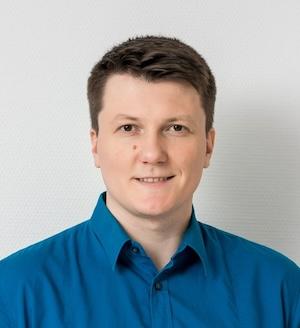 |
08.01.202613:15, Lecture hall C.011 Dr. Alan Hastie (U Edinburgh)Some Thoughts on Making the Oldest Continental Crust Using Petrological Experiments - Don't Shoot the Messenger!Abstract: Ongoing work to investigate the formation of the oldest continental crust 4.3-3.5 billion years ago using experimental petrology. The first continental material is represented by granitoids belonging to the tonalite, trondhjemite, granodiorite suite (TTG). The TTG are thought to be derived from the partial melting of metamorphosed basis igneous rocks. In this seminar we look at the products of melting experiments on several modern and ancient starting compositions and explore whether they can generate TTG-like liquids. Vita: Alan Hastie is associate Professor at the University of Edinburgh and did his PhD at Cardiff University in the UK. Invited by: Elis Hoffmann |
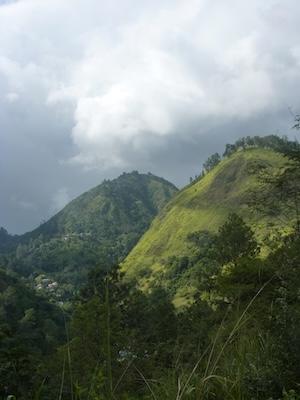 |
15.01.202613:15, Lecture hall C.011 Dr. Barbara Ratschbacher (Bundesanstalt für Geowissenschaften und Rohstoffe Hannover)Fe3+/FeT Ratios in Igneous Amphibole Minerals: A Tool to Understand the Redox State of Arc MagmasAbstract: Volcanic rocks erupting in subduction zone settings are generally more oxidized compared to those erupting from mid-ocean ridges. The process(es) causing these elevated oxygen fugacities in arc settings are controversial but attributed to either source (mantle) and/or crustal differentiation processes. Distinguishing between these processes is challenging due to difficulties constraining the redox state of arc magmas particularly in arc intrusive rocks. Amphibole is an important fractionating phase during calc-alkaline differentiation in arc magmas and incorporates both ferric (Fe3+) and ferrous (Fe2+) iron in its crystal structure. It has been proposed that amphibole Fe3+/FeT ratios can record the Fe3+/FeTratios, and thus magmatic oxygen fugacity, of the melt from which they crystallized. Thus, making amphibole a promising tool to study the redox state of arc magmas. Vita: Barbara Ratschbacher is a Researcher in the Polar Geology group at the Bundesanstalt für Geowissenschaften und Rohstoffe (BGR) in Hannover since 2025. Her research focuses on better understanding the temporal, spatial, and chemical evolution of crustal magmatism particularly in subduction zone settings. Barbara obtained a PhD from the University of Southern California in 2017. She was a postdoctoral scholar at the California Institute of Technology until 2020 and worked at the University of California Davis until 2024. Link to webpageInvited by: Harry Becker |
|
22.01.202613:15, Lecture hall C.011 Dr. Christian Sippl (Czech Institute of Geophysics)Characterizing the Transition from Flat to Inclined Slab in Central ChileAbstract: Flat subduction, where the downgoing oceanic plate horizontally underthrusts the continent for hundreds of kilometers, occurs at several locations along the South American margin. It is usually linked to the subduction of thickened, more buoyant oceanic crust along ridges, but other models for flat subduction being caused by suction forces due to the presence of thick cratonic lithosphere in the direct vicinity of subduction have been proposed. In Central Chile and northern Argentina, the Pampean flat slab section of the Nazca plate extends horizontally eastwards for about 300 km at about 100 km depth before plunging deeper into the mantle. The southern termination of the Pampean flat slab is marked by an extremely sudden transition of slab geometry from flat to normally inclined at about 32°S. While past seismic tomography and anisotropy studies have inferred a slab hole with mantle throughflow in the deeper portion of the Pampean flat slab to the east, where it steepens to plunge into the mantle again, the exact geometry and possible tearing processes along its southern termination are not well constrained. We re-investigate the region using new evidence from an extensive microseismicity catalog that contains more then 350,000 small earthquakes, as well as evidence from seismic tomography, to illuminate the detailed geometry of the slab at this location, as well the signatures of this sudden change in the overlying crust. Vita: Dr. Christian Sippl is a researcher and group leader at the Institute of Geophysics of the Czech Academy of Sciences (IG-CAS). He received his PhD from FU Berlin in 2013, after which he was a postdoctoral researcher at Australian National University (ANU) in Canberra (2013-2016) and GFZ Potsdam (2016-2018). Since 2019, he has been a researcher at IG-CAS, where he has built a working group after receiving an ERC Starting Grant in 2020. His main scientific interests are the seismology and tectonic processes of active plate boundary systems, with a focus on subduction zones. Invited by: Jonas Folesky |
|
29.01.202613:15, Lecture hall C.011 Dr. Hauke Hussmann (DLR Berlin)Measurements with the Bepi Colombo Laser Altimeter (BELA)Abstract: After its launch in 2018, the ESA/JAXA BepiColombo mission is on its way to Mercury, the innermost planet of the solar system. Mercury is an intriguing planetary object with respect to its dynamical state and evolution. The planet contains a large iron core overlain by a relatively thin silicate mantle and crust. Mercury is locked in a unique 3:2 spin-orbit coupling (three rotations around its axis equal two revolutions about the sun), and its intrinsic magnetic dipole field informs us that at least part of Mercury’s iron core is in a liquid state. Phases of global contraction and phases of volcanic activity have occurred in the thermal evolution of the planet. The BepiColombo Laser Altimeter BELA, one of 11 instruments on the Mercury Planetary Orbiter, will acquire topographic data of the planet as well as measurements of its rotational state and tidal deformation. Current knowledge about the geophysics of Mercury, the state of the mission, which will enter its science orbit by end of 2026, and prospects for the investigations with BELA will be summarized here. Vita: Dr. Hauke Hußmann is head of the Planetary Geodesy department at the DLR Institute of Space Research in Berlin. He is Co-Principal Investigator (Co-PI) of the BepiColombo Laser Altimeter BELA on the ESA/JAXA BepiColombo mission which will arrive at Mercury in 2026. He is also PI of the Ganymede Laser Altimeter GALA on ESA's Jupiter Icy Moons Explorer (Juice), currently in flight to the Jupiter system, and Co-Investigator on the subsurface radar instrument and the gravity and radio science investigation on NASA's Europa Clipper mission. Invited by: Frank Postberg |
(Image: ESA) |
05.02.202613:15, Lecture hall C.011 Dr. Simon Hohl (Tongji University Shanghai)Novel geochemical methods to trace microbial metallome evolution through deep timeAbstract: Microbialites are fossilized microbial communities that serve as vital records of early biogeochemical metal cycling, especially in extreme environments. They produce extracellular substances that trap sediments and facilitate carbonate formation, incorporating trace elements without fractionation. Recent research advances include high-resolution in-situ trace element mapping and layer-specific stable metal isotope analysis, offering insights into ancient redox conditions, metal availability, and microbial evolution. These methods help bridge geochemistry and microbiology, enhancing understanding of microbial metallomes through deep time. Vita: Simon V. Hohl is an associate professor at Tongji University's State Key Laboratory of Marine Geology. He and his team explore the complex relationship between microbial communities and authigenic mineral formation as records of nutrient cycling and metabolic evolution through deep time. Simon has strong connections to China, having conducted his PhD research at Freie Universität Berlin in a Sino-German research group on the paleoenvironmental evolution of the Yangtze Platform during the Precambrian-Cambrian boundary. He completed his postdoctoral work at Nanjing University (2015-2018) and moved to Shanghai in 2019. He has received funding from DAAD, the China Postdoctoral Scholarship, the NSFC Excellent Youth program, and the Research Fund for Outstanding International Scientists. His research covers sedimentary geochemistry, geology, and (astro)biochemistry. Invited by: Harry Becker |
|
12.02.202613:15, Lecture hall C.011 Dr. Emanuel Tschopp (FU Berlin)How microscopic details help understand the life of giant, extinct sauropod dinosaurs and their environment 150 million years agoAbstract: Sauropod dinosaurs were the largest animals that ever lived on land. Understanding how they evolved, lived, and how their ecosystems were capable of maintaining diverse and abundant sauropod communities, can therefore yield information about fundamental processes in Nature. Through a combination of confocal laser-scan microscopy, micro-CT scanning, and stable isotope analysis, we aim to better understand how seasonality impacted plant availability and thus controlled spatial distribution of these giant herbivores. Vita: I am an evolutionary paleobiologist specialized on sauropod dinosaurs from the Upper Jurassic Morrison Formation. My main interests include how they evolved, how they could grow so big, and how their community was structured. Currently at Freie Universität Berlin, I have done my undergraduate at University of Zurich, Switzerland, before moving to Universidade NOVA de Lisboa in Portugal for my PhD and a first Postdoc. Since then, I’ve held a Marie Curie Postdoc at Università di Torino in Italy and a Theodore Roosevelt Memorial Fund Postdoc at the American Museum of Natural History in New York, USA. Invited by: Stefanie Kaboth-Bahr |
|
Subscribe to the Geocolloquium mailing list:The programme and lecture information are distributed via the colloquium mailing list: https://lists.fu-berlin.de/listinfo/geokolloquium. You can directly subscribe to this list using the link. We usually send out only two announcement emails per lecture. |
|
